5. 3:10 to Yuma (2007)
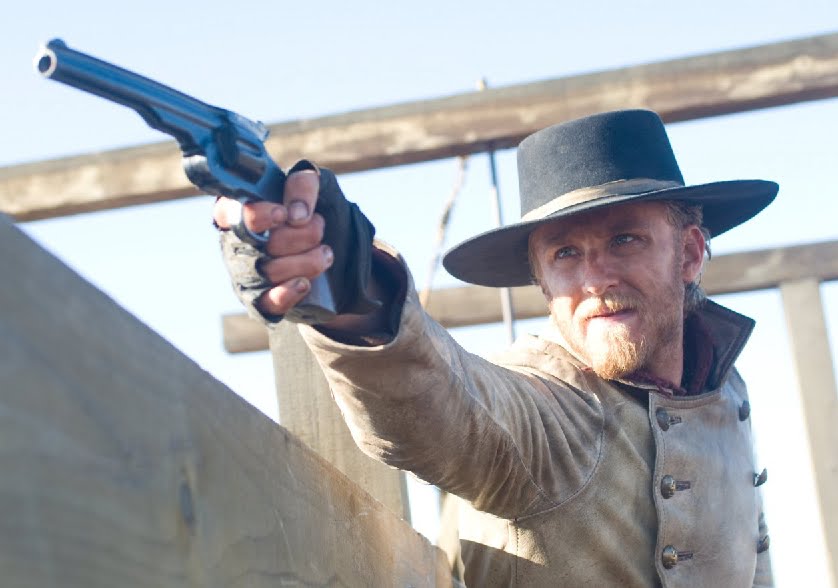
One of two high profile modern remakes of classic (the other was True Grit, also very good), James Mangold’s flair for impressive visuals and assembling excellent casts is on full display in this film. Dustier and more action-packed than some of the others listed here, 3:10 to Yuma is a roaring success in the way it successfully builds strong characters to balance out the thrills. And right from the get-go, the thrills are in high supply. From the opening sequence, wherein Christian Bale’s passive, well-meaning Dan Evans is powerless to stop his home burning after it’s set alight by debt collectors, to the introduction of Russell Crowe’s dastardly Jack Wade and his henchman played by Ben Foster, the stage is set for at least one fiery battle of wits.
The ensemble is impressive and the journey is as exciting and rife with entertaining sequences as the ultimate destination. There are tense moments at every turn, such as when the bullish and competely unflappable Wade (almost amused by his captors once he is arrested and sent on a multiday journey to meet his 3:10 tain to Yuma fate), begins to compliment Evans’ wife at the dinner table one evening even after refusing grace.
Both chief actors are exemplary and the film is dizzyingly shot, usng the landscape beautifully. Evans wants redemption and sees chaperoning the notroious crim Wade as an opportunity. Wade thinks he can leverage the situation, More than just a series of shootouts, this incarnation gets under the skin due to the well fleshed out psychology of its primary players, and Crowe and Bale excel in their roles – delivering top-notch turns. And with Alan Tudyk and Gretchn Mol in support, Yuma is a blistering, intoxciating western-thriller.
4. Man of the West (1958)
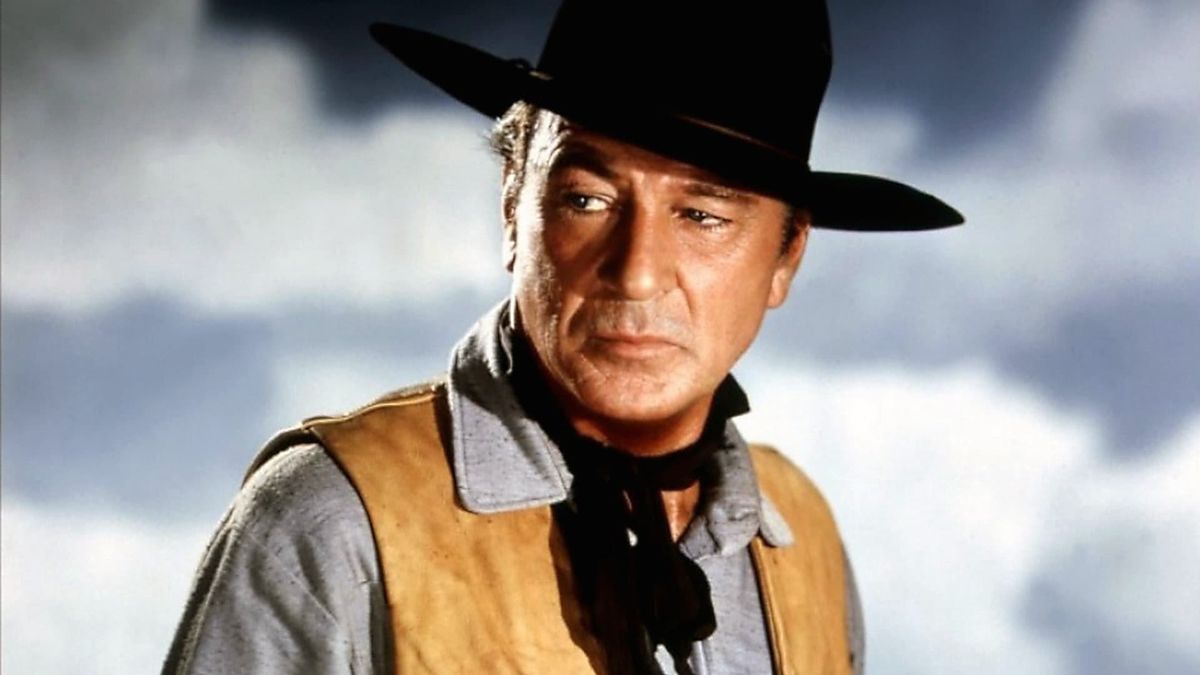
Man of the West was directed by Anthony Mann and remains one of the most intriguing, oddball entries in the director’s vast oeuvre. With Gary Cooper at his stolid best in the lead, the film spends a lot of its time in a fixed location and is heavy on atmosphere and mood as much as it is on action. Its interplay between its character render it endlessly interesting and in a filmography containing Winchester 67, Bend of the River etc – Man of the West is best read as western noir fusion with psychological elements to spare.
Here, Coopers’ Link Jones is innocently trying to forget about his former outlaw ways and is on the way to Fort Worth in a redemption arc which Mann was a master at potraying in different ways. When the train is set upon by armed bandits, his journey is halted and he’s forced to seek refuge in the farmhouse where he grew up. There, he is confronted by the robbers and his uncle Dock Tobin (who is the ringleader of the posse). Tobin is played by the firebrand Lee J. Cobb (The Exorcist) and Link is forced to defy his uncle’s insistence he reacquant himself with his thieving past.
Man of the West contains some seriously intersting character dynamics and portrays a man at war with himself, desperate to show grit in the face of conflict. West is character and dialogue-driven and is still rightly regarded as one of the edgier, psycholocial outings by Mann – an interrogative thematic drama.
3. The Hateful Eight (2015)
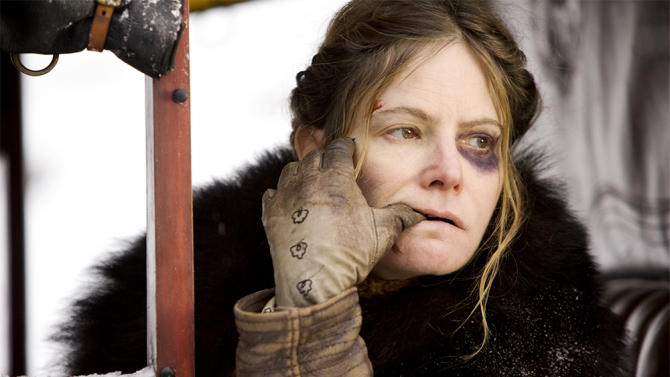
Back in 2016, Quentin Tarantino released The Hateful Eight. A fascinating, lengthy paean to the western that contains as many thrills as anything else in the director’s filmography. Headlined by Samuel L. Jackson (in a magnificently commanding performance), the film pulls the rug out from under the viewer in turning its classically western setup into a whodunit scenario as its snowy setting becomes a charater in itself.
Very Tarantino – the Hateful Eight, while not his best, is close to the most inventive film in the director’s canon in its successful potpourri of genres. A motley crew of inviduals (including Jackson’s bounty hunter, Kurt Russell’s bounty hunter and Jennifer Jason Leigh’s Daisy) are forced to take shelter from a soon-to-arrive blizzard at a haberdashery where they are greeted by an assortment of other lodgers. Tensions arise and the dialogue is typically grandiose and brilliant. The barbs hit as hard as the slugs and the air is seldom clear of distrust or gunpowder.
The Hateful Eight seriously keeps the viewer guessing and is loaded with surprises at every turn (including a bizarre, amusing Channing Tatum appearance towards the end). Every character’s mind is ticking over in The Hateful Eight, and the viewer’s will be too, in what proves a devastatingly well-written psychological thriller-western mashup.
2. Slow West (2015)
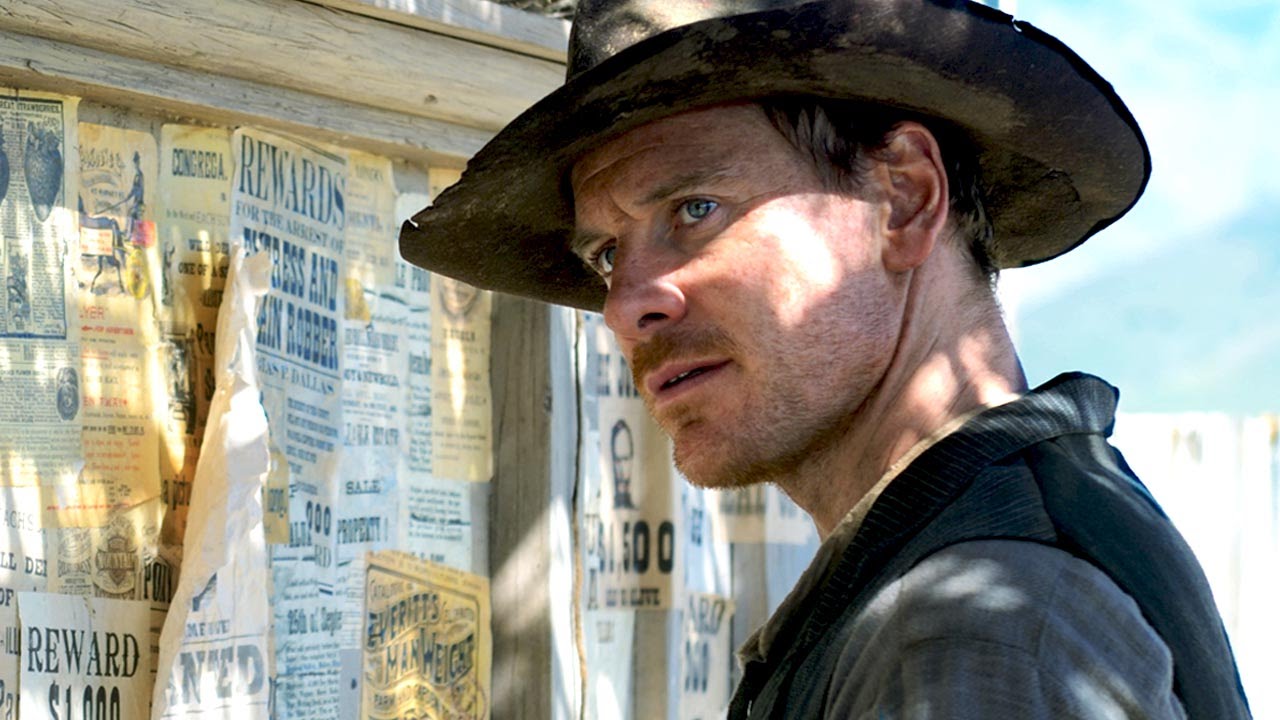
Slow West may be the most underrated western of the last 20 years. Or, most underrated films, period. Its premise is relatviely simple, but its inclusion of a doomed, lovelorn romance and the sustained ebbs and flows in the relationship between bounty hunter Silas Selleck (Michael Fassbender) and his somewhat reluctant protégé (Kodi Smit McPhee of the outstanding Power of the Dog) render the film a powerful, evocative revisionist western that punctuates its languid silences and contemplative philosophy with moments of jarring brutality.
Shot in New Zealand (doubling for Colorado or in and around that region) first time director John Maclean brings remarkabe assuredness and restraint to a picture that resonates long after the credits dissipate. McPhee is Jay Cavendish, a young man from Scotland who heads to the American West in pursuit of his lost love Rose. He encounters the resourceful Selleck en route and decides to use the bounty hunter as his bodyguard as he navigates across the country, fumbling his way toward a futile destiny.
Of course, there is a bounty on Rose’s head and Selleck decides to use the kid as a way to claim the dough for himself, and strives to keep the information concealed while also assuming the role of would-be protector. It’s beautfully shot and littered with many seriously funny moments by way of the hodgepodge of characters that drift in and out of the unlikely duo’s cross-country journey. Ben Mendelsohn’s Payne, also a bounty hunter who used to work with Selleck, complicates matters too as he is also in pursuit of gain.
The scenes shared between Fassbender and Mendelsohn are naturally, utterly brilliant. Slow West is a deep meditation on hope and mortality and the boundary between reality and unreality – Jay remains resolute in his quest despite it ultimately being fruitless. Slow West is a firmly character-driven piece, characteristic of many psychological westerns. Rose (Caren Pistorius who shines), is focused on her own way of life and never held a candle out for Jay the way he did she. Underpinned by sadness, the full motivations of each character are largely kept out of sight of each other, and the film’s lingering mystique serves as thought-provoking nourishment for fans of ruminative westerns. The climactic shootout is also ruthless and scarily intense.
1. Unforgiven (1992)
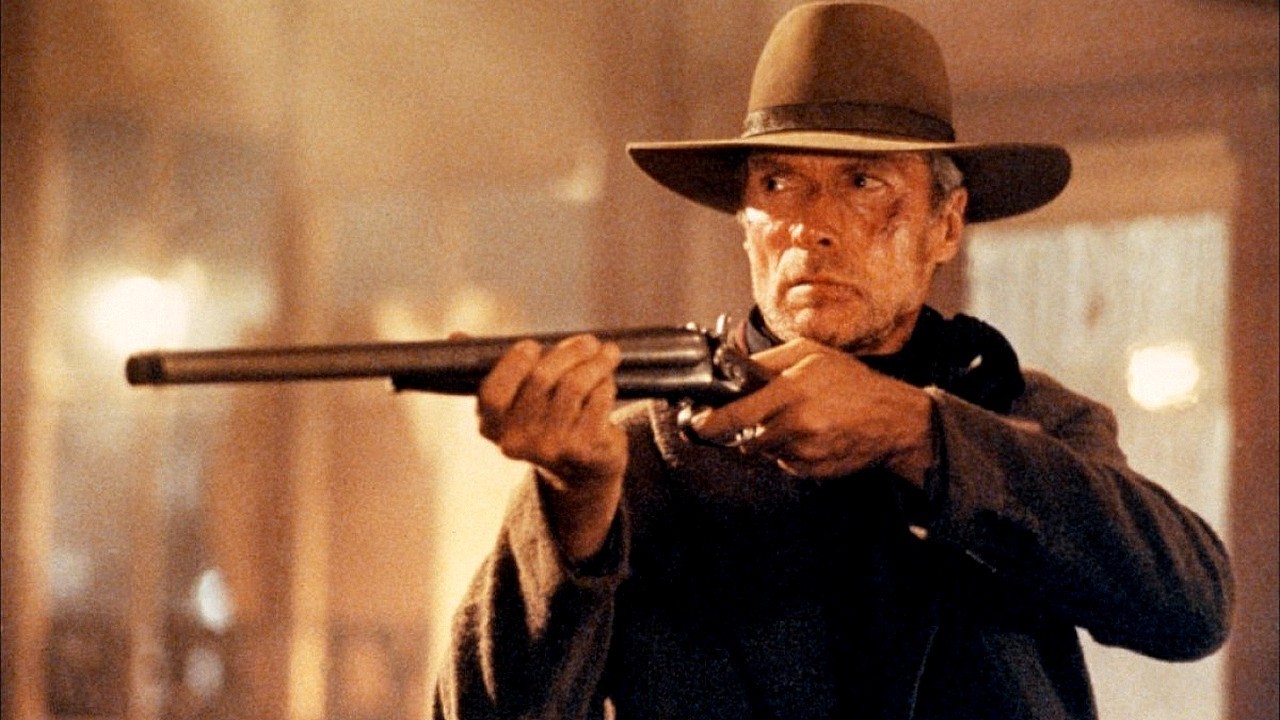
Clint Eastwood’s lauded Unforgiven needs no real introduction. Extolled as a defining film of the genre, the picture also embodies many of the traits central to the psychological western. Widely seen as a film that reinjected life into the genre – Unforgiven is always exciting, but its moments of quietude hit as hard as its indelible showdowns. Of course, Eastwood was no stranger to directing westerns with an at-times spooky flavor. High Plains Drifter was a hallucinatory, oneiric experience that contained chilling motifs.
While Unforgiven is more grounded, it’s a film loaded with nerve-inducing sequences as his hardened, once immoral William Munny looks to leave the darkness of his former iife behind him. Lured into undertaking ‘one last job’ alongside loyal friend Ned Logan (Morgan Freeman), Munny is again forced to once again resort to his unflinching ways when faced with tyrannical Sheriff Little Bill Daggett (Gene Hackman), later motivated by a personal loss. Munny is a character tortured by some of the horrors of his former days. He’s no longer indominable, he can be worn down, bested. He is forever plagued by regret and his sorrow comes out in half-muttered sentences, hat drawn low.
The final confrontation between Bill and Munny in the semi-darkness (a while after the latter was brutally beaten) is unfogettable filmmaking. The close-ups on each actor’s face capturing each fate-clinching second expertly. Tension never less than palpable. Unforgiven is a fine revisionist take on the genre and a captivating western containing psychological undercurrents.